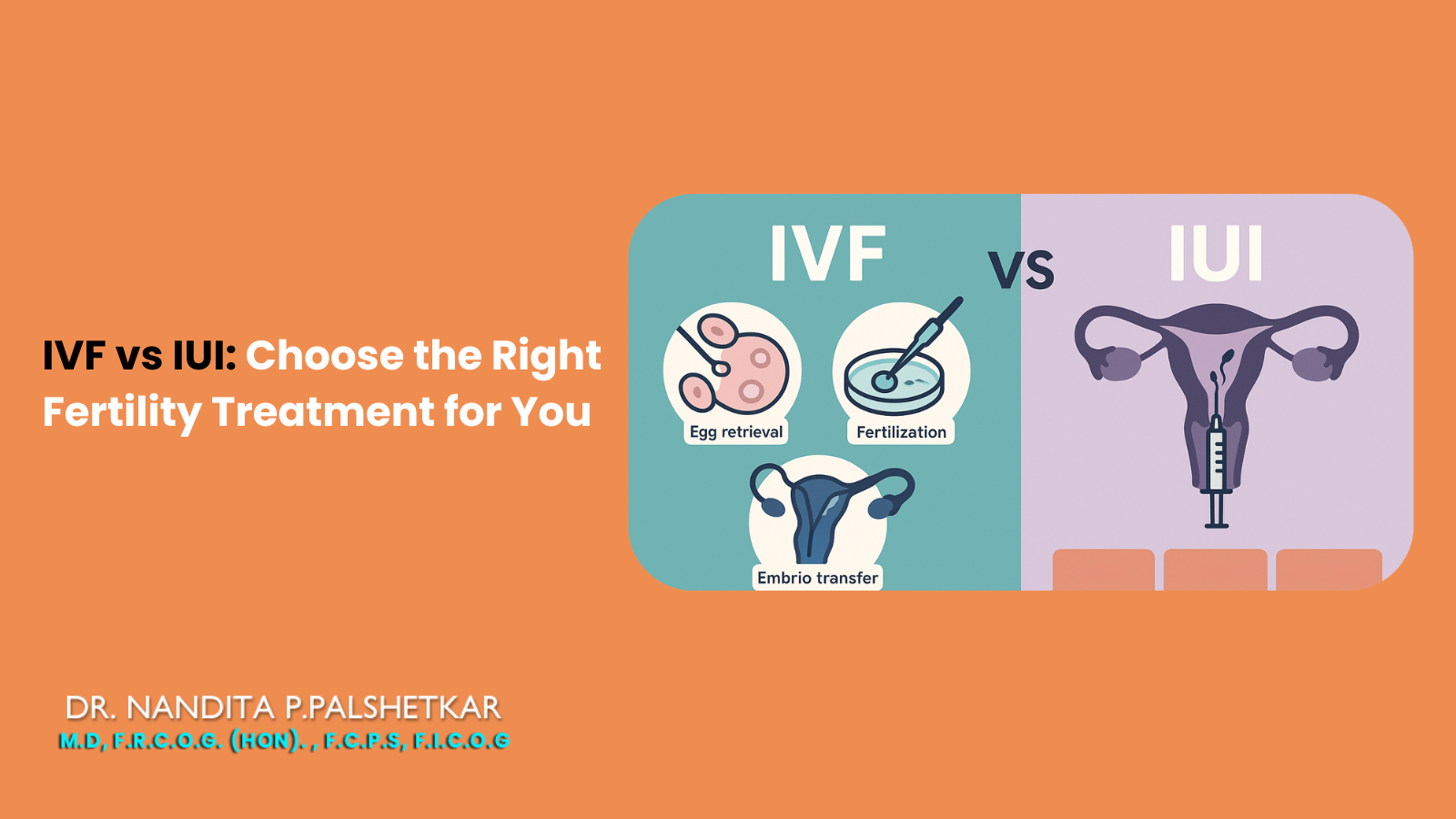

E-Brochure Download Now!

Confused between IVF and IUI? Selecting the right fertility treatment can feel overwhelming, especially when faced with unfamiliar medical terms and options. Understanding the differences between IVF and IUI is essential to making an informed decision about your reproductive health. This blog aims to compare these two common assisted reproductive technologies and help you determine which fertility treatment is best suited to your unique needs.
In Vitro Fertilisation (IVF) involves retrieving eggs from the ovaries and fertilising them with sperm in a laboratory. Once fertilised, the resulting embryos are transferred into the uterus. IVF is typically recommended for cases with blocked fallopian tubes, severe male infertility, or previous unsuccessful fertility treatments. Intra-uterine Insemination (IUI), on the other hand, is a less invasive procedure where processed sperm is directly inserted into the uterus around the time of ovulation.
It is often suggested for mild male factor infertility, unexplained infertility, or when cervical mucus issues are present. While IVF relies on laboratory fertilisation, IUI facilitates fertilisation inside the body, making the procedures distinct both in process and complexity.
| Aspect | IVF | IUI |
| Procedure | Eggs are retrieved, fertilised in the lab, and then the embryo is transferred | Sperm is inserted directly into the uterus |
| Cost | Higher due to medications, lab work | Generally lower, fewer medications |
| Timeframe | 4 weeks per cycle | Shorter cycle, often under two weeks |
| Invasiveness | More invasive (egg retrieval) | Minimally invasive |
Success rates for IVF and IUI depend heavily on age and individual fertility factors. IVF generally has higher success rates, particularly in women over 35 or those with reduced ovarian reserve. For younger women with mild infertility issues, IUI may be effective and less intensive.
Additional factors such as sperm quality, ovarian health, and underlying diagnoses significantly influence outcomes. Clinical experience shows IVF offers a more controlled environment for fertilisation, often improving chances in complex cases, while IUI can be a good initial option when simpler treatments are appropriate.
In India, IUI is typically more affordable, costing a fraction of what a single IVF cycle might require. However, multiple IUI cycles are often necessary, which can accumulate costs over time. IVF involves higher upfront costs, including medications, lab work, and monitoring, but it can offer a better return on investment for those with more challenging fertility issues.
Factors affecting cost include the number of cycles, medications used, diagnostic testing, and clinic protocols. Transparent discussion with your fertility specialist will clarify the financial expectations specific to your case.
When deciding between IVF and IUI, consider your age, the cause of infertility, your financial situation, and your emotional readiness for treatment. While IUI is less invasive and quicker, IVF might be necessary if initial treatments fail or if there are specific medical indications.
Ultimately, consultation with a fertility specialist is vital to assess your circumstances and select the treatment best aligned with your health and family goals.
Choosing the right fertility treatment is a personal decision that requires understanding your unique fertility challenges and options. Both IVF and IUI have roles in modern assisted reproductive technology, but only personalised medical advice can determine the most suitable path. Consult a fertility expert to receive tailored guidance and optimise your chances of parenthood.
Confused about whether IVF or IUI is the best choice? Dr Nandita P Palshetkar, a leading fertility specialist, offers expert guidance tailored to your unique needs and circumstances. Don’t let uncertainty hold you back. Book your appointment today and take confident steps toward making your dream of parenthood a reality, with compassionate and expert care every step of the way.